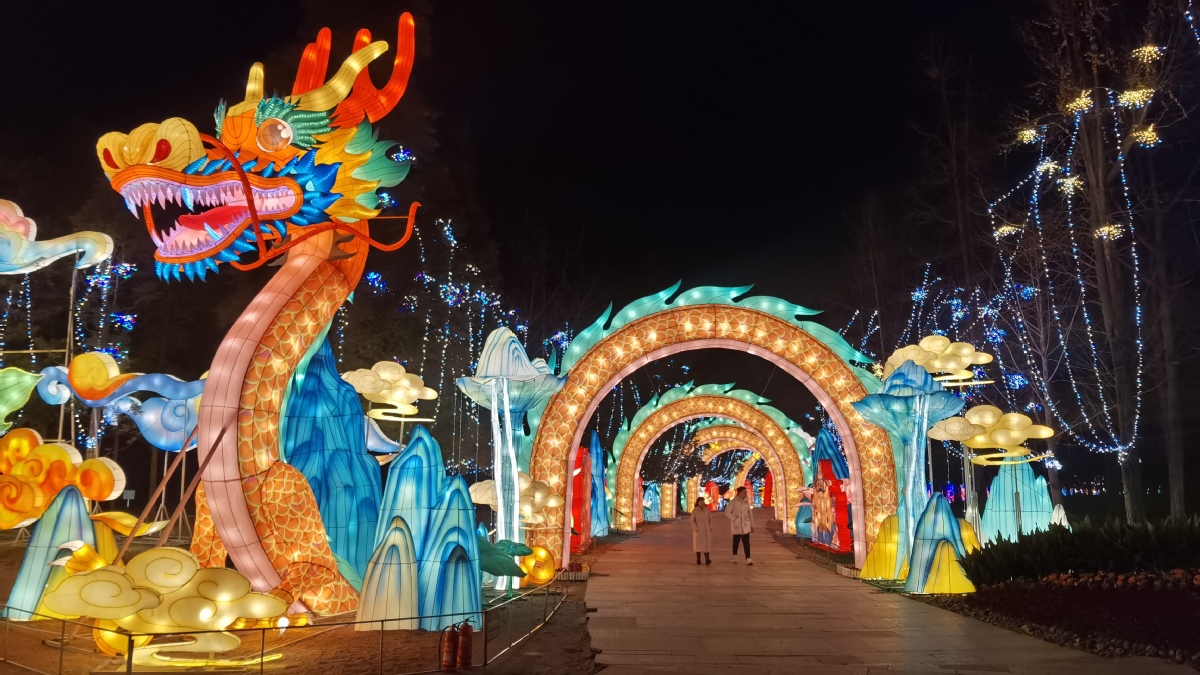龍年到 聊聊龍年成語 (I) Idioms for the Year of the Dragon (I)
The World of Chinese 2024-03-04 17:16


Kick off the Year of the Dragon (龍年, lóng nián) with some useful Chinese "chengyu (成語, chéng yǔ)" about this mythical creature
The Year of the Dragon has always been one of China's favorite years. As one of the country's most beloved zodiac animals (十二生肖, shí èr shēng xiào), dragons have been seen as symbols of the nation since ancient times. Chinese people often even refer to themselves as "descendants of dragons (龍的傳人, lóng de chuán rén)."
In traditional Chinese culture, dragons are powerful divine beasts (神獸, shén shòu), symbolizing authority, nobility, and good fortune. Many believe being born in the year of the dragon will bring them good luck. The belief is pervasive: China often experiences higher birth rates (出生率, chū shēng lǜ) in dragon years.
Over centuries, dragon (龍 lóng) stories have formed dozens of chengyu, Chinese idioms normally consisting of four characters (四字成語, sì zì chéng yǔ). Most of these idioms including dragons are positive (正面的, zhèng miàn de), often describing a person's outstanding appearance, status, or abilities.
For example, a talented or powerful individual is often referred to as a "dragon among humans (人中之龍, rén zhōng zhī lóng)." The leader of an excellent team may be hailed as the "head of a group of dragons (群龍之首, qún lóng zhī shǒu)," and parents' great ambitions for their children are encapsulated in the term "expect the child to become a dragon (望子成龍, wàng zǐ chéng lóng)." Here are a few more dragon idioms and their fascinating stories.
乘龍快婿 The ideal son-in-law can ride a dragon
Han dynasty (206 BCE – 220 CE) scholar Liu Xiang (劉向, liú xiàng) coined another dragon-related chengyu in his Biographies of Immortals (《列仙傳》, liè xiān zhuàn), where he recounts a romantic tale. Liu wrote how Nongyu (弄玉, nòng yù), a daughter of Duke Mu of the State of Qin in the Spring and Autumn Period, fell in love with a young man named Xiao Shi (蕭史, xiāo shǐ). Nongyu played beautiful music on the sheng (笙, shēng), a reed pipe instrument, while Xiao was skillful with the xiao (簫, xiāo), a traditional Chinese flute.
After their marriage, they spent their days making heavenly music together in Phoenix Tower (鳳凰臺, fèng huáng tái), which Duke Mu had built for them. Their tunes were so stunning they attracted phoenixes to the couple, and one day in a moment of musical magic, they each mounted magical birds and ascended heaven together, achieving immortality.
Liu's initial text had no mention of dragons, but later retellings of the story said that Nongyu rode a phoenix and Xiao rode a dragon up to heaven. The phrase "the ideal son-in-law rides a dragon (chéng lóng kuài xù)" remains widely used today to express admiration for someone else's son-in-law (女婿, nǚ xù).
This must be your dragon-riding son-in-law! What a charming young man!
Zhè jiù shì nín de chéng lóng kuài xù ba! Guǒ rán yī biǎo rén cái!
這就是您的乘龍快婿吧!果然一表人才!
來源:The World of Chinese
編輯:萬月英

















 英語點津微信
英語點津微信 雙語小程序
雙語小程序